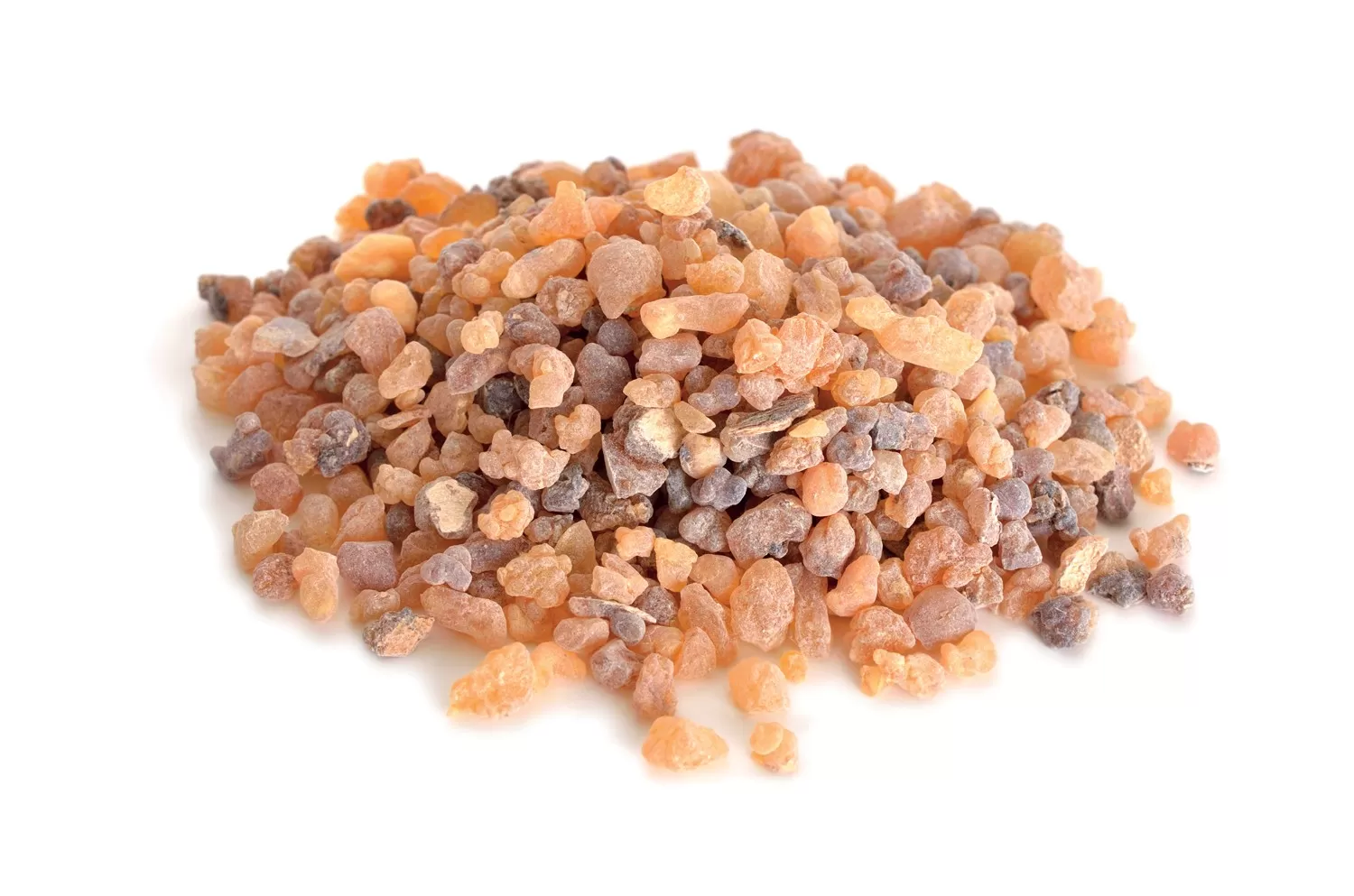- 0086-571-85302990
- sales@greenskybio.com
Who Should Avoid Boswellia: Its Contraindications and Risks
2025-04-25
Boswellia, commonly known as Indian frankincense, is a herbal extract derived from the resin of the Boswellia tree. It has gained popularity for its potential medicinal properties, particularly its anti-inflammatory effects. Boswellia is traditionally used in Ayurvedic medicine to manage conditions such as arthritis, asthma, and inflammatory bowel disease. Despite its therapeutic benefits, Boswellia is not suitable for everyone. An understanding of its contraindications is crucial to ensuring safe usage and avoiding adverse health effects.
The Therapeutic Uses of Boswellia
Boswellia is primarily used for its anti-inflammatory capacity. The active compounds, known as boswellic acids, are believed to inhibit pro-inflammatory enzymes, making the extract particularly beneficial for individuals with chronic inflammation. Studies have suggested Boswellia's efficacy in alleviating symptoms of osteoarthritis and rheumatoid arthritis, improving respiratory function in asthma sufferers, and supporting gastrointestinal health in individuals with inflammatory bowel conditions like Crohn's disease and ulcerative colitis.
Who Should Avoid Boswellia and Why?
Despite its myriad benefits, Boswellia can pose health risks to certain individuals, making it essential to identify who should avoid its use.
Individuals with Allergies
Boswellia can trigger allergic reactions in some people, especially those who have allergies to plants in the Burseraceae family. Symptoms of an allergic reaction may include skin rashes, itching, difficulty breathing, and swelling of the face, lips, or tongue. Individuals with a history of tree or plant allergies should exercise caution and consult a healthcare provider before using Boswellia.
Pregnant and Breastfeeding Women
The safety of Boswellia during pregnancy and breastfeeding has not been thoroughly researched, so it is generally recommended that pregnant and lactating women avoid its use unless under professional guidance. Potential concerns include Boswellia's ability to stimulate uterine contractions and its influence on hormonal balance, which could pose risks to both the mother and child during these sensitive periods.
Patients on Specific Medications
Boswellia may interact with certain medications, potentially exacerbating health issues or altering drug efficacy. Understanding these interactions is vital for minimizing risks.
1. Anticoagulant and Antiplatelet Drugs
Boswellia's anti-inflammatory properties may influence blood clotting mechanisms, posing a risk for individuals on blood-thinning medications such as warfarin, aspirin, and clopidogrel. The combination of Boswellia and these drugs could amplify the risk of bleeding complications, so patients should consult their healthcare provider before use.
2. Nonsteroidal Anti-inflammatory Drugs (NSAIDs)
While Boswellia is effective for inflammation reduction, combining it with NSAIDs like ibuprofen or naproxen may lead to heightened anti-inflammatory effects, potentially increasing the risk of gastrointestinal bleeding or ulcers. Although Boswellia can protect the gut lining, careful monitoring is recommended if used alongside NSAIDs.
3. Asthma Medications
Boswellia holds promise for respiratory health, yet it may interact with asthma medications such as bronchodilators and corticosteroids. This interaction might alter the effectiveness or increase side effects like dizziness or heart palpitations. Asthma patients should consult with their healthcare provider before incorporating Boswellia into their treatment plan.
4. Diabetes Medications
Boswellia may impact blood glucose levels, which could interfere with diabetes medications. It might enhance or reduce the effects of diabetic drugs, necessitating close blood sugar monitoring. Diabetes patients should seek medical advice before using Boswellia supplements.
Pre-surgical Considerations
Due to its effect on blood coagulation, Boswellia should be discontinued at least two weeks prior to scheduled surgeries. This precaution aims to minimize the risk of excessive bleeding and interactions with anesthesia or post-operative medications.
Usage in Children
While Boswellia is generally deemed safe for adults, its effects on children remain less understood due to limited research. Parents should exercise caution because of potential allergies or interactions with existing medications in a pediatric population. Consulting with a healthcare provider is advised prior to introducing Boswellia to a child's health regimen.
Conclusion
Boswellia offers promising health benefits, particularly for individuals suffering from inflammation-related conditions. However, understanding its contraindications is crucial for avoiding adverse effects and ensuring safe usage. Individuals with allergies to Boswellia or related plants, pregnant or breastfeeding women, and those on specific medications should be cautious an













